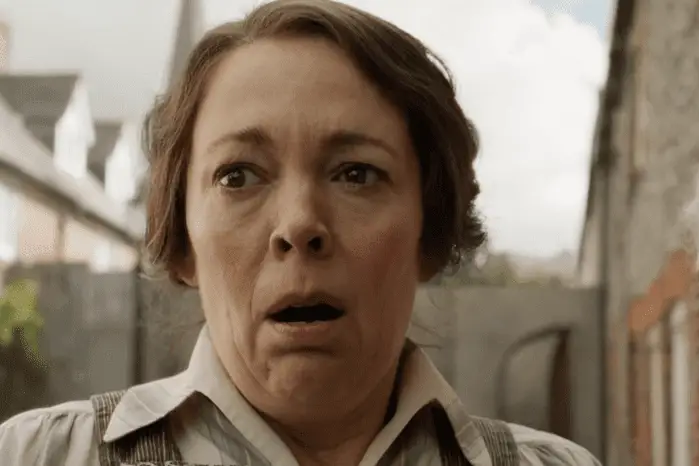True Story of Wicked Little Letters: The Scandal Behind the Comedy
Although they were once good friends, a disagreement pitted them against each other, and when Edith and other local residents begin receiving a series of obscene letters, Rose quickly comes under suspicion. However, as the trial progresses, it becomes clear that all is not as it seems. “I read it and thought it was a […]

Although they were once good friends, a disagreement pitted them against each other, and when Edith and other local residents begin receiving a series of obscene letters, Rose quickly comes under suspicion.
However, as the trial progresses, it becomes clear that all is not as it seems.
“I read it and thought it was a very well-realized idea,” star Timothy Spall, who plays Edith’s father, Edward Swan, said of the film. “But that’s not the case, and I was delighted to find that it was based on the truth!
More like this
“And sometimes you say. ‘Of course it was,’ because these absurd things often work because you say, ‘Really?'”
Plot ? Read on to find out the true story of the new comedy.
True story of the nasty little letters
Wicked Little Letters is inspired by the real-life scandal that rocked the sleepy town of Littlehampton, Sussex, in the 1920s, after the real Rose Gooding moved there in 1918.
Rose had welcomed her daughter Dorothy out of wedlock three years before marrying her husband, Bill, which was frowned upon at the time.
Nevertheless, Rose quickly became friends with her neighbor, Edith Swan, with the two men bonding over their household chores. Edith wrote down a recipe for chutney and lent Rose knitting patterns for socks, while Rose lent Edith a tin bath.
But their friendship quickly deteriorated after they argued over their shared garden, and Edith quietly planned her revenge.
Edith began sending crude postcards in Rose’s name, filled with obscene language and scandalous accusations.
At first, the insults ranged from cow to bl**dy, but they became increasingly obscene, according to the daily mailwho was covering the story at the time.
Posing as Rose, Edith even wrote to tell her fiancé Bert – who was then serving with British forces in Iraq – that she had become pregnant by another man, leading him to cancel their plans to marry. marriage.
Edith, who modern historians suspect of having mental health problems, later launched a private prosecution against Rose, who appeared before Littlehampton magistrates and was charged with criminal libel in September 1920.
Rose returned home after spending three months behind bars.
But her ordeal was not yet over, as Edith remained stuck, sending letters again and bringing Rose back to court.
Rose’s lawyer attempted to clear her name, producing the handwritten knitting instructions and chutney recipe Edith had given her, pointing out that the handwriting resembled the calligraphy of the letters.
But despite her lawyer’s efforts, Rose was sentenced to 12 months of hard labor.
How was Edith Swan caught?
Edith’s web of lies began to unravel shortly after Rose’s second sentence.
After Rose was convicted for the second time, Edith wrote more obscenities in a notebook and sent it to the police, claiming it had been found near the Goodings’ house on a street.
While Edith had apparently tried to strengthen her case against Rose, it ended up having the opposite effect, with police identifying similarities between the handwriting inside the notebook and Edith’s covering letter.
Rose was released after three months of sentence.
The notebook incident prompted Scotland Yard to send Inspector George Nicholls to investigate the libel case.
George asked local policewoman Gladys Moss to watch the Swan house from a nearby shed, and Gladys saw Edith throw a piece of paper near Violet May’s back door. Violent was a neighbor that Rose had previously targeted.
Edith was put on trial in 1921, but the judge refused to believe that she could be capable of using such foul language.
It wasn’t until 1923 that detectives hatched a plan to obtain enough evidence to convict Edith.
They marked a series of postage stamps with invisible ink and ordered the post office to sell them to Edith. So when Edith struck again the following June, detectives were able to trace the letters back to her.
In July, the jury at Lewes Crown Court found Edith guilty.
Judge Avory respected the jury’s decision and sentenced Edith to 12 months in prison, but reportedly said he found it inconceivable that a “plain-spoken, respectable woman” like Edith would be capable of writing such a ” dirt”.
Wicked Little Letters hits theaters Friday, February 23. Check out more of our movie coverage or visit our TV guide and streaming guide to find out what’s on.
Try Radio Times magazine today and get 10 issues for just £10 – Subscribe now. For more on TV’s biggest stars, listen The Radio Times podcast.













